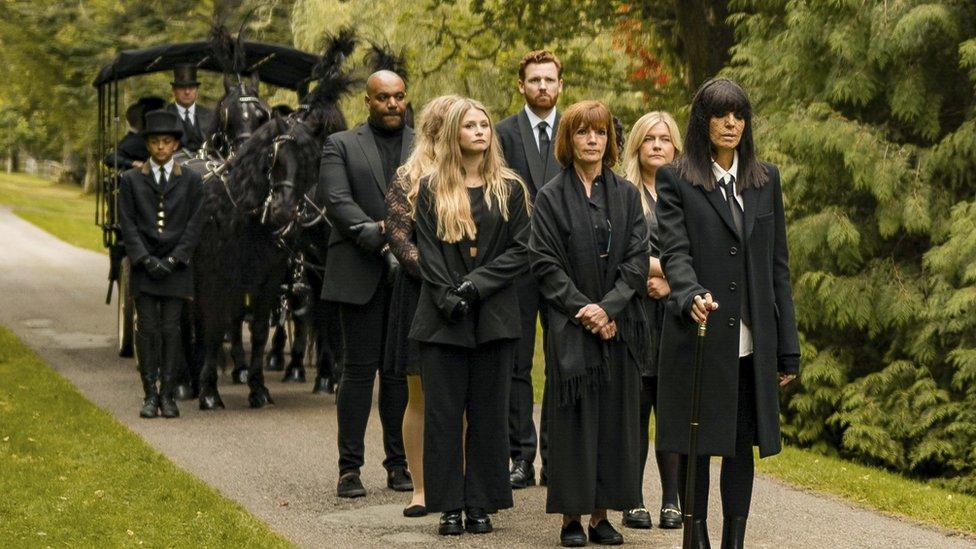The Traitors star Jasmine says online hate left her scared to go out
- Published
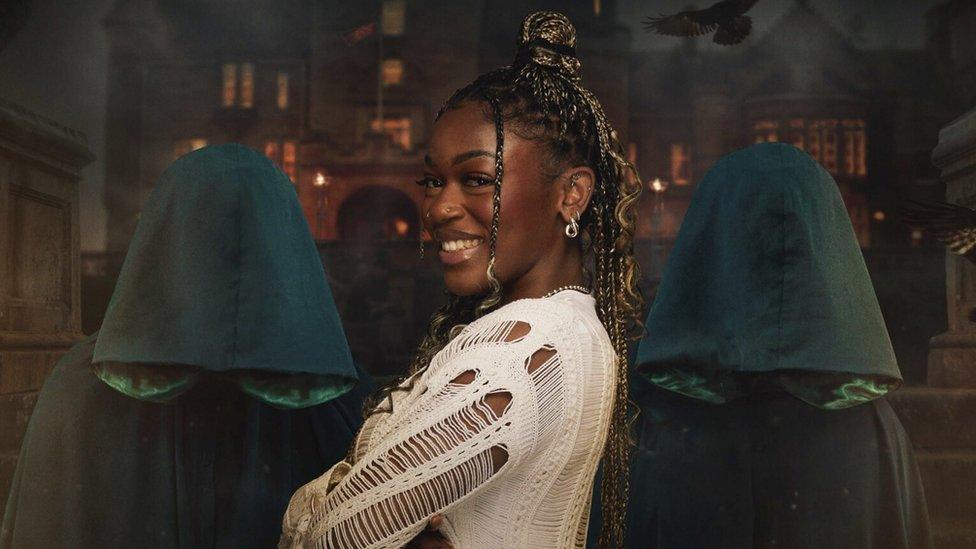
Jasmine Boatswain says she was exposed to online hate after appearing on The Traitors
Traitors star Jasmine Boatswain says online abuse after her appearance on the show left her struggling to leave the house.
The 26-year-old says the negative attention made her feel "really, really low" and affected her mental health.
And while she says she's in a better place now, Jasmine decided to open up on TikTok to "break down the barrier of anonymity of the internet".
"I wanted to show the human side of me. I have layers, I have emotions."
Jasmine, from London, made it to the semi-finals of the BBC reality series, which sees 22 contestants try to identify the traitors among them and win up to £120,000.
She played as a faithful and was popular online, often coming close to uncovering the traitors' scheming. She was also forthcoming with her opinions and sometimes butted heads with other players.
But since the series was broadcast, Jasmine says being in the public eye has been more difficult than she expected.
"I'm being recognised on the street, which is wild," she tells BBC Newsbeat.
"With that though, I was exposed to a lot of hate on social media," she says.
"Seeing what people had to say about me definitely did affect how I felt about myself, which I felt was a bit of a shame really, because it was an exciting time.
"It was exciting to be a part of such a great TV show and I kind of let that take away from the experience."

Jasmine made it to the semi-finals of the show but was banished before the end
Jasmine says the volume and nature of the online comments made her worry she'd be abused in the street, and that "everyone hated" her.
"And I didn't want to leave the house because of that," she says.
Although Jasmine did get a positive reaction from lots of fans, she says the negative comments started to crowd out the positive ones in her head.
"I genuinely couldn't believe when someone said to me, 'I really liked you on the show'," she says.
"I just thought they were taking pity on me because I just really, really let these comments get to me."
Jasmine says she's in a better place now and has been helped by the aftercare team from The Traitors.
"They're so hands-on and they have regular check-ins," she says. "They definitely helped me in making sure that I'm OK and getting over the kind of rut that I was in after seeing the negativity online."
Since leaving the show, Jasmine's gone back to her normal life in London, working in sales at a start-up company as well as playing rugby.
It's "life as normal but just a little bit different," she says, thanks to her increased profile.
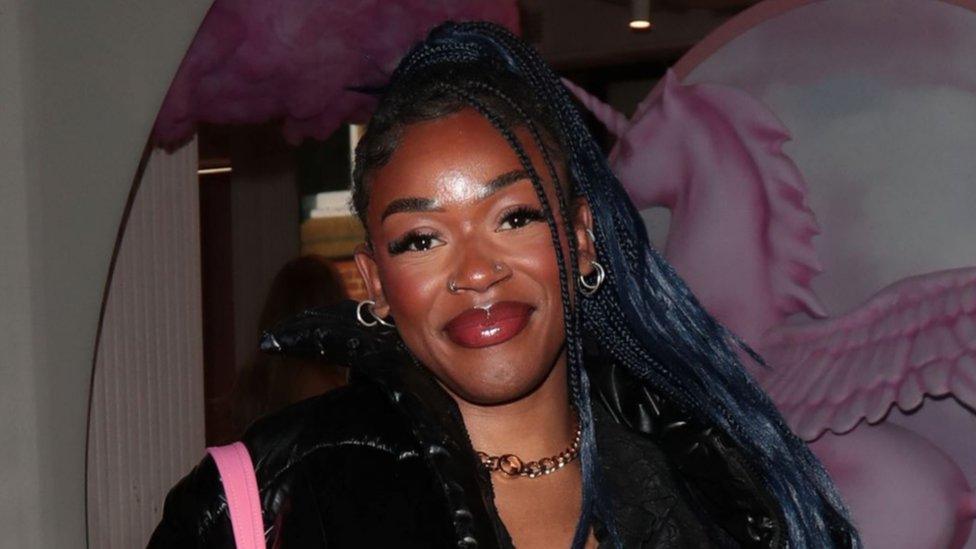
Jasmine says she's in a better place now but at one point struggled to leave the house
Last week, a report found that people in their 20s are more likely to be off work due to ill health than people in their 40s and they also had the poorest mental health out of all age groups.
Jasmine says she's not previously struggled with her mental health, but her recent experience makes her believe the internet plays a significant role in those findings.
"There's so much constant exposure to stuff that young people are now experiencing these days," she says, whether that's people's opinions or news stories.
"And it's so hard to not let it get to you."
That's echoed by YoungMinds, a charity supporting young people's mental health.
"[People] feel the online world can provide a space to socialise, share information, learn and explore, but they also recognise the potential negative impacts," says Olly Parker from the charity.
"They feel bombarded with distressing content they did not search or ask for."
The charity wants social media companies to do more to protect users from harmful content but has advice for anyone who needs support in the meantime.
"If you see stories or posts on social media that make you feel anxious, try to take a break away from it," says Olly.
"Go through your social media feed and work out what makes you feel good and what doesn't."
By sharing details about her mental health online, Jasmine says she wanted to remind people of her normality.
"I think people get really lost in the fact that they can say absolutely anything about anyone... because I'm just a profile picture on a screen," she says.
"Things affect me in the same way that they affect everyone."
If you've been affected by the issues raised in this article, help and support is available via BBC Action Line.


- Published27 February 2024
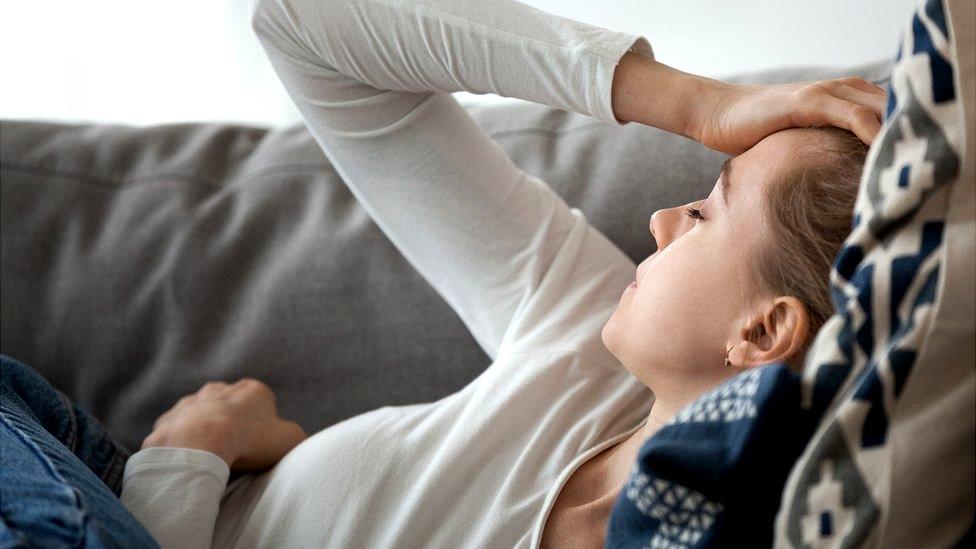
- Published26 January 2024
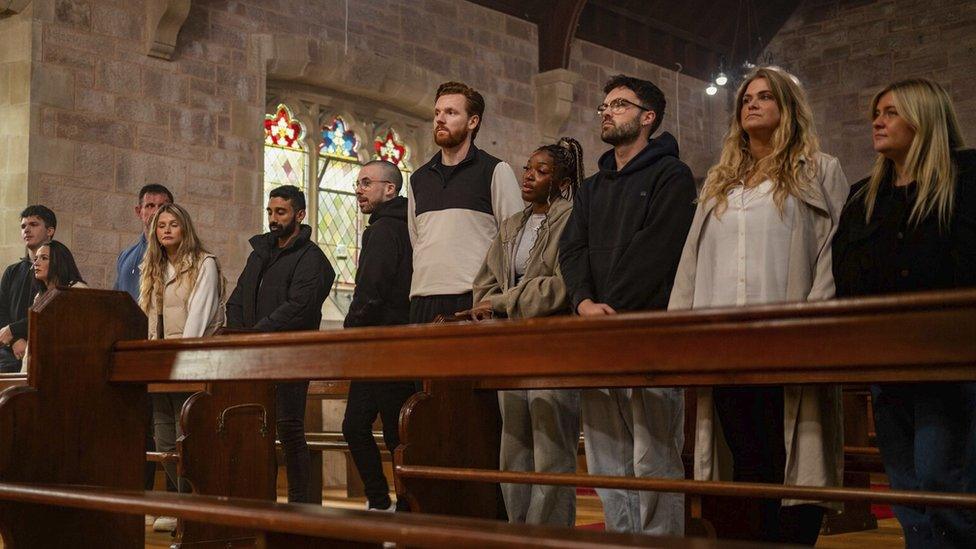
- Published18 January 2024
